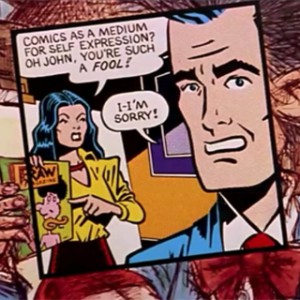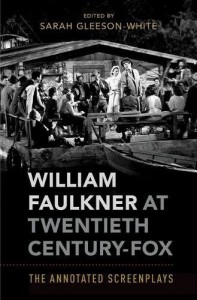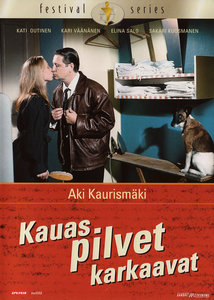Daily Archives: October 28, 2022
Review of WILLIAM FAULKNER AT TWENTIETH CENTURY-FOX: The Annotated Screenplays
From Sight and Sound, July 2017. — J.R.
WILLIAM FAULKNER AT TWENTIETH CENTURY-FOX
The Annotated Screenplays
Edited by Sarah Gleeson-White, Oxford University Press, 949 pp., ISBN 9780190274184
Reviewed by Jonathan Rosenbaum
We know that Faulkner was no cinephile, but it’s less known that he referenced Eisenstein in The Wild Palms and cited Citizen Kane and The Magnificent Ambersons as two of his favourite films (along with High Noon) in a 1958 interview. One also can’t read the present-tense opening of Light in August without noting its cinematic immediacy, which suggests that consciously or not, Faulkner learned a lot from the movies.
Yet when it comes to his screenwriting, it’s closer to alienated, assembly -line labour than any significant form of self-expression. Editor Sarah Gleeson-White, a Sydney-based literary scholar, is well aware of this problem, beginning her Introduction with contradictory statements from Faulkner about how seriously he took this work (both of which, unsurprisingly, sound perfectly sincere) while noting that he wrote around fifty Hollywood screenplays between 1932 and 1954. That Faulkner was fully capable of working simultaneously on both his novel Absalom, Absalom and Hawks’ The Road to Glory is also duly noted. But Gleeson-White’s ambivalence about what actually constitutes screen authorship is reflected in the fact that several photographs in her commentaries are devoted to Faulkner’s Fox collaborators and none at all to Faulkner himself. Read more
The Chicago International Film Festival Week 2: Simon Says (excerpted)
From the Chicago Reader, October 29, 1995.
As the Chicago International Film Festival moves into its second week, two more films with distributors have been added to the list. Persuasion — a thoughtful, intelligent adaptation of the Jane Austen novel that provides a welcome alternative to Merchant-Ivory — is replacing Deathmaker and is being handled by Sony Pictures Classics. Things to Do in Denver When You’re Dead, filling the “surprise” film slot, is on all counts the dumbest Hollywood movie I saw in Cannes last May — an egregious Tarantino spin-off with everything the mainstream press is screaming for: a simple (even stupid) contrived plot, intimations of deranged and nonsensical violence, macho stances, movie stars, a fancy title, and the Miramax logo. It has nothing to do with reality and everything to do with someone pointing at Reservoir Dogs and saying, “Let’s have another one of those.” Under the circumstances, I guess the performances are OK.
Last week I suggested that the focus of this year’s retrospective, Lina Wertmuller — the recent recipient of the festival’s Golden Hugo for lifetime achievement — was a bizarre choice that might have been made interesting if the festival had issued a monograph explaining why her work was still worth defending or had some special relevance to the 90s. Read more
Life on the Edge [DRIFTING CLOUDS]
From the Chicago Reader (July 10, 1998). One thing that has recently led me to reconsider my estimation of Aki Kaurismaki is this superb, engaging appreciation of him by Girish Shambu.– J.R
Drifting Clouds
Rating ** Worth seeing
Directed and written by Aki Kaurismaki
With Kati Outinen, Kari Vaananen, Elina Salo, Sakari Kuosmanen, Markku Peltola, and Matti Onnismaa.
It might be risky to generalize about national character after visiting a country for only a week, but the particular kind of self-deprecating humor in all six features I’ve seen by Aki Kaurismaki was equally apparent during my recent visits to both Helsinki and the Midnight Sun film festival in Sodankyla. Kaurismaki and his older brother Mika, also a filmmaker, are the founders and guiding spirits of this festival, and its artistic director is one of their best friends, so the humor I’m describing is probably a type that flourishes under their eccentric auspices.
Roughly speaking, this attitude derives in part from the belief that Finns are perceived as the Poles of Scandinavia. Their language shares more roots with Hungarian and Estonian than with Swedish, Danish, or Norwegian, and Helsinki, by virtue of being only a few hours from Saint Petersburg, may have more links with Russia than with its Nordic cousins. Read more




